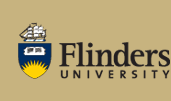The Master of Nutrition and Dietetics is a 72-unit full-time coursework program which is offered by the Faculty of Health Sciences.
The course equips graduates to meet the entry level competency standards specified by the Australian professional accrediting body, the Dietitians Association of Australia (DAA).
Admission requirements
Applicants must normally:
- hold an approved degree in some area of the sciences with a GPA normally of at least a credit average, or an equivalent qualification; and
- have successfully undertaken and passed approved university-level studies in biochemistry and physiology to at least Second Year level.
Applicants must submit with their application a statement outlining their interest in the course and profession, and evidence of any relevant employment experience. Applicants will be ranked for admission on the basis of a selection score which is a combination of academic merit (70%) and assessment of their statement of interest and experience (30%).
The Faculty Board may however, under certain circumstances and subject to specific conditions, admit others who can show evidence of fitness for candidature.
Course aims
The course aims to:
- produce nutritionists and dietitians who are able to integrate and apply their theoretical knowledge skills and attributes to the promotion of health and the prevention and treatment of illness through optimising the nutrition of communities and individuals
- provide students with introductory knowledge of the fundamental skills required for research and an opportunity for in-depth study in an area of dietetic interest.
Learning outcomes
At the completion of the course, students are expected to have:
- obtained the knowledge, skills and attitudes to undertake quality nutrition and dietetic practice in a range of settings
- developed reflective practice skills to underpin the high level of self-evaluation and self-management required to effectively practice in a changing and flexible work environment in which accountability at the individual and organisational level is becoming increasingly important
- the skills to develop a planned and strategic approach to the development of personal and professional competencies that utilises interpersonal networks and focuses on quality nutrition and dietetic practice
- developed enhanced self-management, problem solving, communication, networking and advocacy skills to enable effective practice in positions with limited peer support
- demonstrated an understanding of the principles of primary health care and the impact of social, political, economic, environmental and cultural factors on food choice and the health of individuals, families and communities
- understood the importance of interdisciplinary approaches to the management of nutritional problems and the promotion of nutritional health and well-being
- obtained an understanding of the scope and potential of the discipline of nutrition and dietetics
- understood the importance of a commitment to the nutrition and dietetic discipline including individual and collective professional development
- the ability to promote informed and critical questioning and thinking.
Program of study
To qualify for the Master of Nutrition and Dietetics, a student must complete 72 units with a grade of P or NGP or better in each topic, according to the following program of study:
Core - Year 1 topics
36 units comprising:
NUTD9111 Nutrients - Role and Function (6 units)
NUTD9118 Food Studies (3 units)
NUTD9119 Socio-cultural Issues in Food and Nutrition (3 units)
NUTD9121 Nutrition and Dietetics (6 units)
NUTD9122 Maternal and Child Nutrition (3 units)
NUTD9123 Communication and Nutrition Counselling (3 units)
NUTD9124 Public Health and Community Nutrition (6 units)
NUTD9125 Clinical Nutrition and Dietetics (6 units)
Core - Year 2 topics
36 units comprising:
NUTD9212A Management and Food Service 1 (3 units)
NUTD9212B Management and Food Service 2 (3 units)
NUTD9213A Nutrition Research Elective 1 (6 units)
NUTD9213B Nutrition Research Elective 2 (3 units)
NUTD9214 Critical Thinking in Nutrition (3 units)
NUTD9215A Clinical Placement in Nutrition and Dietetics 1 (6 units)
NUTD9215B Clinical Placement in Nutrition and Dietetics 2 (6 units)
NUTD9216A Community/Public Health Placement in Nutrition and Dietetics 1 (3 units)
NUTD9216B Community/Public Health Placement in Nutrition and Dietetics 2 (3 units)
Except with permission of the Faculty Board:
- the course must be completed within four consecutive years or, where credit has been granted for previous work, a period determined by the Board
- a student may not proceed to a higher year unless they have satisfactorily completed the previous year&##39;s topics
- a student who has interrupted their studies in the course for one year or more after having completed the topics NUTD9118, NUTD9123, NUTD9124 and NUTD9125, or who fails NUTD9211A/B may be required to undertake and gain a grade of Non-graded Pass in topic NUTD9150 Readiness for Professional Practice Placement (0 units) before enrolling or re-enrolling in NUTD9211A/B.
The award of a grade of Fail (F) in the same topic on more than one occasion or failure to complete the course within four consecutive years may constitute prima facie evidence of unsatisfactory progress for the purposes of the University&##39;s Policy on Student Progress.
Note: Students commencing the degree in 2011 and successfully studying full-time will complete the degree under the program of study listed above. Students commencing in this degree in 2012 will enrol under a new program of study to be published in late 2011.
